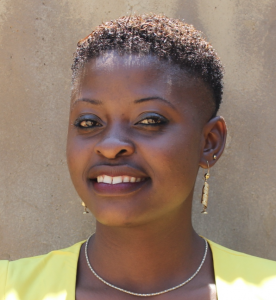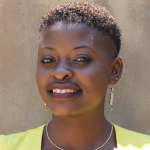Friends Logere Primary School began in 2017 for children in grades one through four because parents were concerned about their little ones traveling four kilometers to the nearest school. Now, even though their school is in close proximity, parents are still concerned for their children's safety.
Since the school doesn't have its own water source, students must venture outside the school grounds every morning. They travel along a busy, dangerous road, risking injury or worse, to collect water from a local spring to meet the school's needs.
"The lack of water in the school is a real headache to me. Personally, [I] am always worried because of the pupils' safety as they go crossing the road to the spring," said 48-year-old teacher Pamelah Vugutsa (shown below).
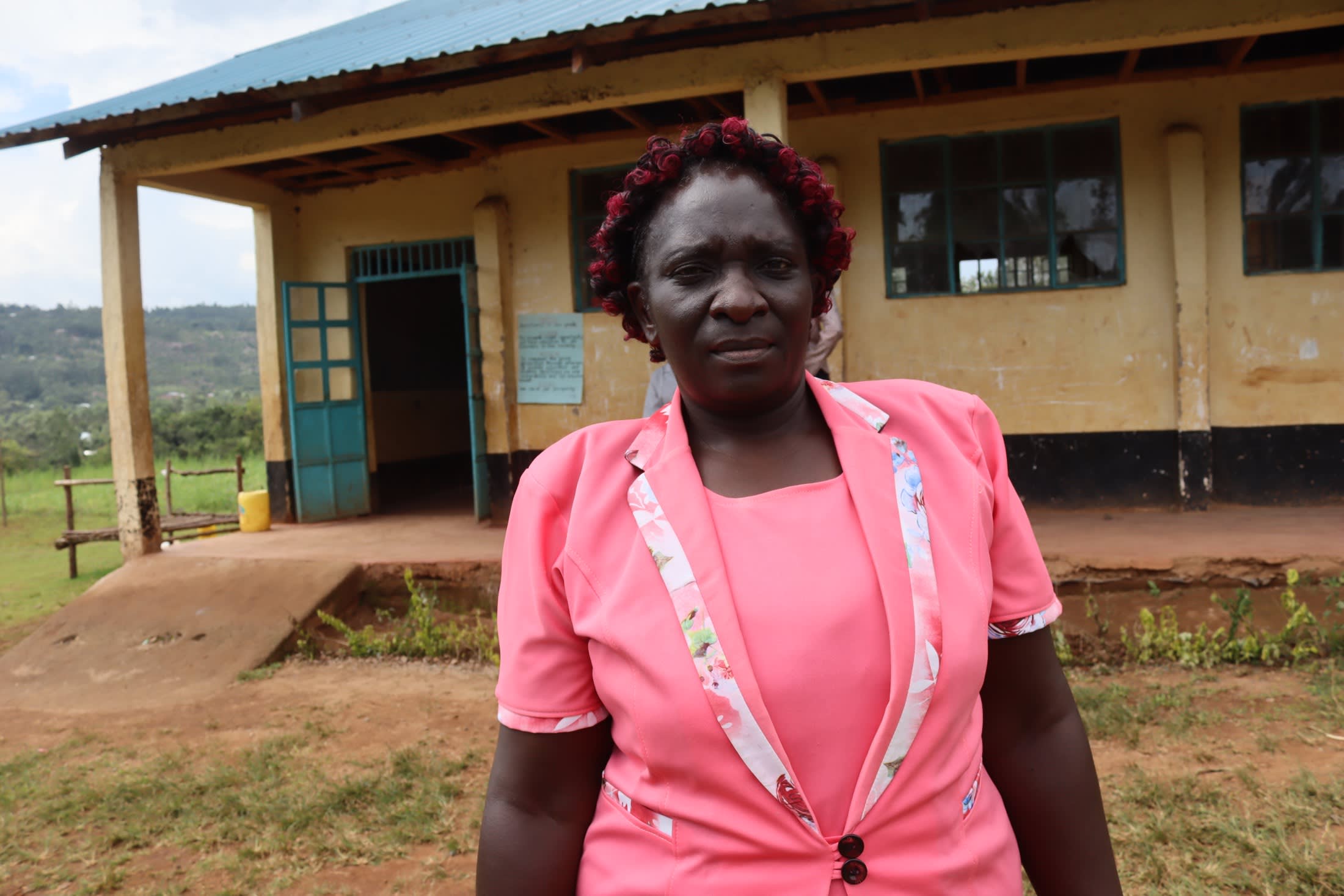
The spring provides sufficient water, but because it is shared with community members, pupils waste a lot of time waiting in long lines.
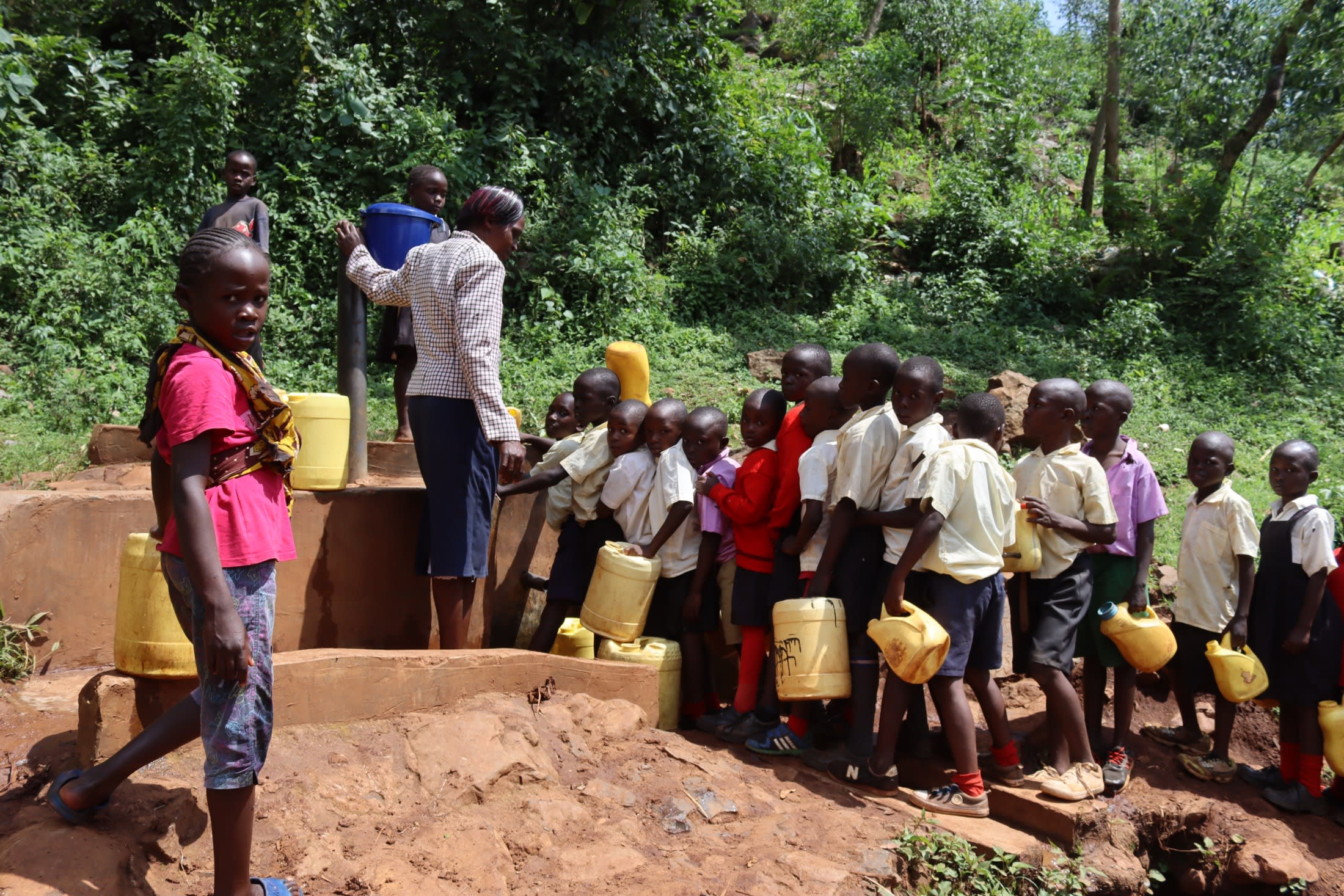
And not only are children tired from traveling to the spring, waiting in line, and carrying heavy water containers, but with so much time spent outside the classroom, they are also suffering academically.
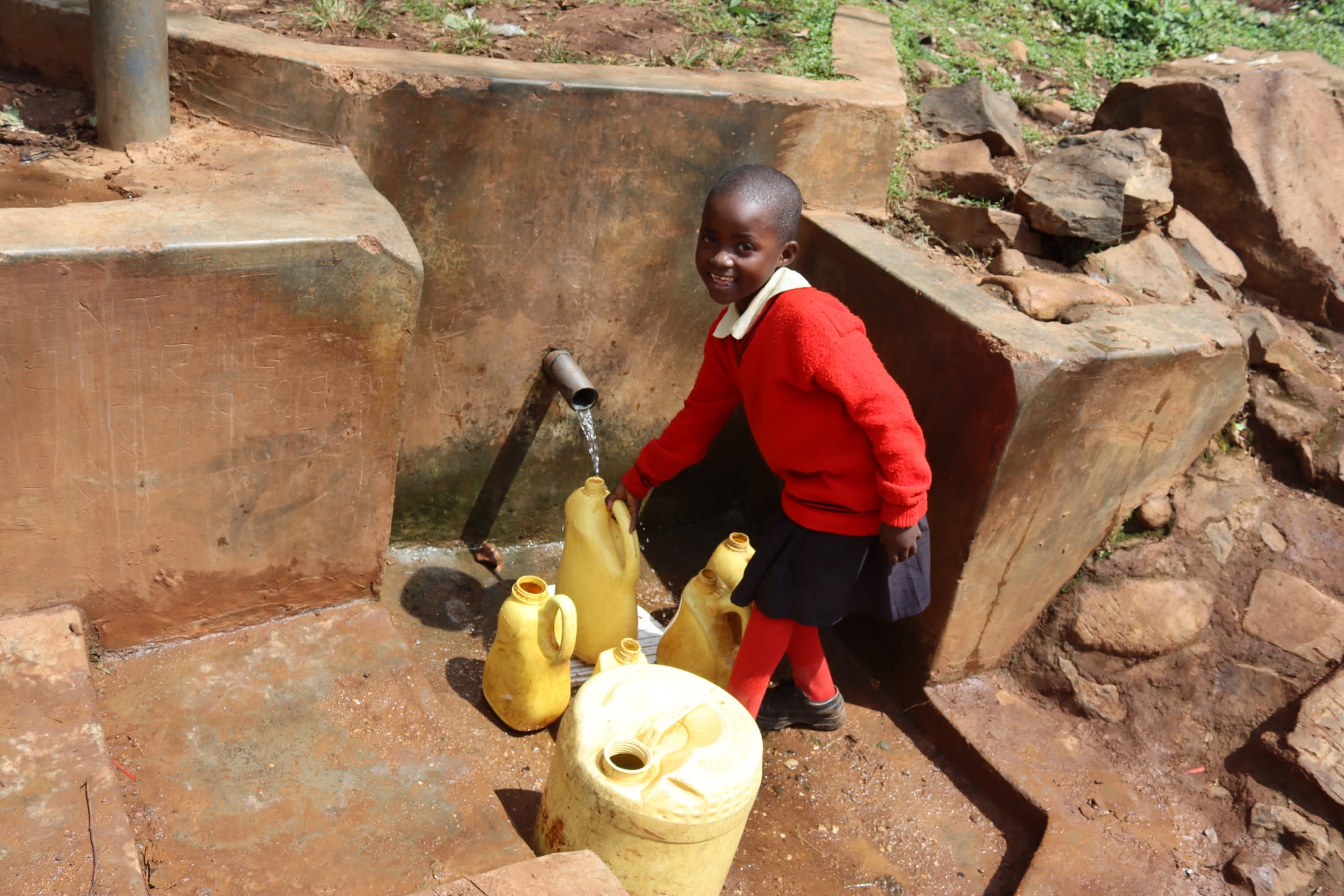
"My studies are greatly affected, and my grades are not increasing. [I] am always worried of not attaining my target grades to help me further my studies after primary school," said nine-year-old Shantel O., shown above collecting water at the spring.
By installing a well at the school, hopefully, students will be able to stay safely on the school campus while they continue learning, and parents' concerns can be eased.
What We Can Do:
New Well
We conducted a hydrogeological survey at this school and the results indicated the water table beneath it is an ideal candidate for a borehole well. Due to a borehole well's unique ability to tap into a safe, year-round water column, it will be poised to serve all of the water needs for this school's large population, even through the dry months.
The school will help collect the needed construction materials such as sand, rocks, and water for mixing cement. They will also provide housing and meals for the work team, in addition to providing local laborers. We will complement their materials by providing an expert team of artisans and drilling professionals, tools, hardware, and the hand-pump. Once finished, water from the well will then be used by the school’s students and staff for drinking, handwashing, cooking, cleaning, and much more.
Handwashing Stations
The student health club will oversee the two new handwashing stations we will provide, and make sure they are kept clean and in working condition. The club leaders will fill the handwashing stations with water daily and make sure they are always supplied with a cleaning agent such as soap or ash.
VIP Latrines
We will construct two triple-door latrine blocks using local materials that the school will help gather. Three doors will serve the girls and three doors will serve the boys. All of these new latrines will have cement floors that are designed to be easy to use and to clean. And with a borehole right on school property, there should be enough water to keep them clean.
Training on Health, Hygiene, COVID-19, and More
We will hold a one-day intensive training session with students, teachers, and parents. This training will cover a wide range of topics including COVID-19 symptoms, transmission routes, and prevention; personal and environmental hygiene; and the operation and maintenance of the borehole, latrines, and handwashing stations. There will be a special emphasis on handwashing.
Our team of facilitators will use a variety of methods to train, including participatory hygiene and sanitation transformation, and asset-based community development. We will initiate a student health club, which will prepare students to lead other pupils into healthy habits at school and at home. We will also lead lectures, group discussions, and provide illustrative handouts to teach health topics and ways to promote good hygiene practices within the school including handwashing and water treatment. We will then conduct a series of follow-up trainings before transitioning to our regularly scheduled support visits throughout the year.
We and the school strongly believe that all of these components will work together to improve standards at this school, which will help lead to better student academic performance and will help unlock the opportunity for these students to live better, healthier lives.



 Borehole Well and Hand Pump
Borehole Well and Hand Pump
 Rehabilitation Project
Rehabilitation Project












